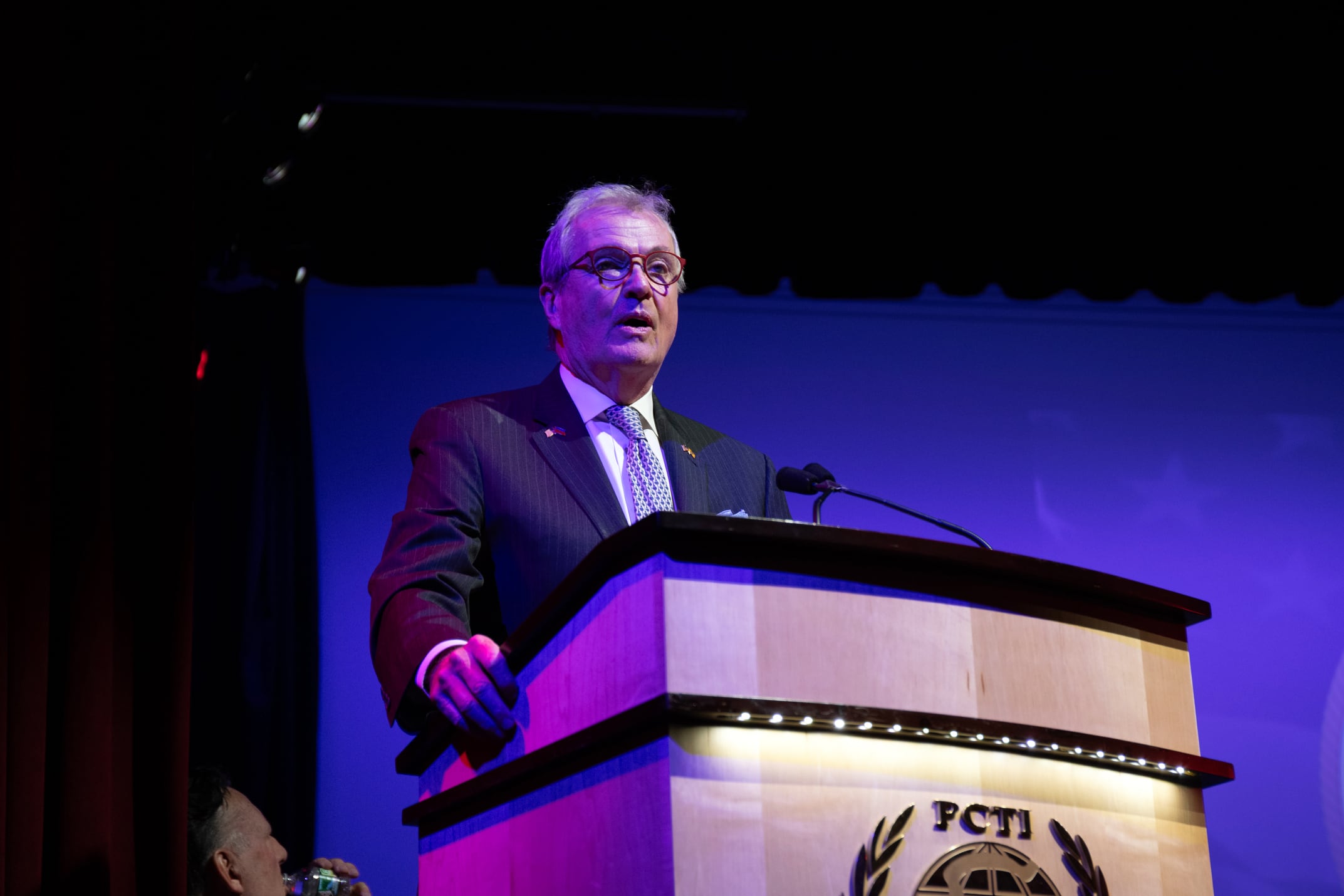Sign up for Chalkbeat Newark’s free newsletter to get the latest news about the city’s public school system delivered to your inbox.
In his final year at the helm, New Jersey Gov. Phil Murphy wants to see a ban on cellphone use in the state’s K-12 classrooms, calling for school districts to establish “phone-free schools” in his 2025 State of the State address on Tuesday.
Murphy also reinforced his commitment to long-standing initiatives that have defined his education agenda as governor, such as the expansion of free universal pre-K, in his annual address delivered in Trenton, which was also livestreamed. This was the two-term Democratic governor’s penultimate state of the state address before his successor takes office next year.
As part of his education plan this year, Murphy also wants to require all school districts to provide full-day kindergarten. In addition, he doubled down on his support to lower the voting age to allow 16- and 17-year-olds to cast ballots in local school board elections.
Murphy’s classroom cellphone ban endorsement follows similar initiatives from other state governors, including New York Gov. Kathy Hochul and California Gov. Gavin Newsom.
“They are fueling a rise in cyberbullying, and they are making it incredibly difficult for our kids, not only to learn, but to retain the substance of what they learn,” Murphy said of cellphone usage in schools. “Honestly, is it any surprise that the rise in smartphone usage has coincided with a growing youth mental health crisis?”
The excessive use of smartphones and social media can have detrimental effects on youth mental health and academic performance, according to recent studies. In national surveys, many educators have said cellphones are a major distraction in the classroom, and there’s also evidence that most adults support a ban on classroom cellphone use.
Murphy said he supports “a new proposal that will direct school districts across New Jersey to adopt policies that ban cellphones from our K-12 classrooms and help establish phone-free schools.” Supporters of banning or curbing the use of cellphones during school have referred to their movement as “phone-free schools.”
New Jersey lawmakers have already proposed a bill that directs the state’s education commissioner to meet with school stakeholders as the education department works on developing cellphone and social media policies.
At the start of the school year, the N.J. Department of Education released a memo to districts with guidance on how to handle the issue and discuss the harmful effects of cellphone usage in the classroom. The department also has a Commission on the Effects of Social Media Usage on Adolescents working on providing recommendations for social media and smartphone usage standards, along with a webpage that offers guidance on these topics for administrators and educators.
In Newark Public Schools, the current policy states that electronic devices and cellphones may be brought to school but students may not use them to make calls or take photos or videos from within the school building, unless they receive permission from a school administrator.
Let us know your thoughts on the Newark school district’s cellphone policy by answering a few questions in our survey.
In addition to the cellphone ban, Murphy reiterated his continued goal of ensuring every school district offers free universal pre-K. Most school districts in the state already offer full-day kindergarten, but Murphy said he wants to make it a requirement.
“There are still some districts falling short,” of full-day kindergarten, he said. “And as a result, families and children in these communities are being left behind.”
Murphy also reaffirmed his support for lowering the voting age to 16 and 17 for local school board elections statewide, following the city of Newark’s policy change last year. The upcoming school board race in April will be the first time 16- and 17-year-old Newark residents can cast their vote.
“As I said — during my last State of the State Address — this proposal is an investment in the long-term health of our democracy. Because empowering our youth to participate in local elections will encourage them to become lifelong voters,” Murphy said.
Catherine Carrera is the bureau chief for Chalkbeat Newark. Contact Catherine at ccarrera@chalkbeat.org.






